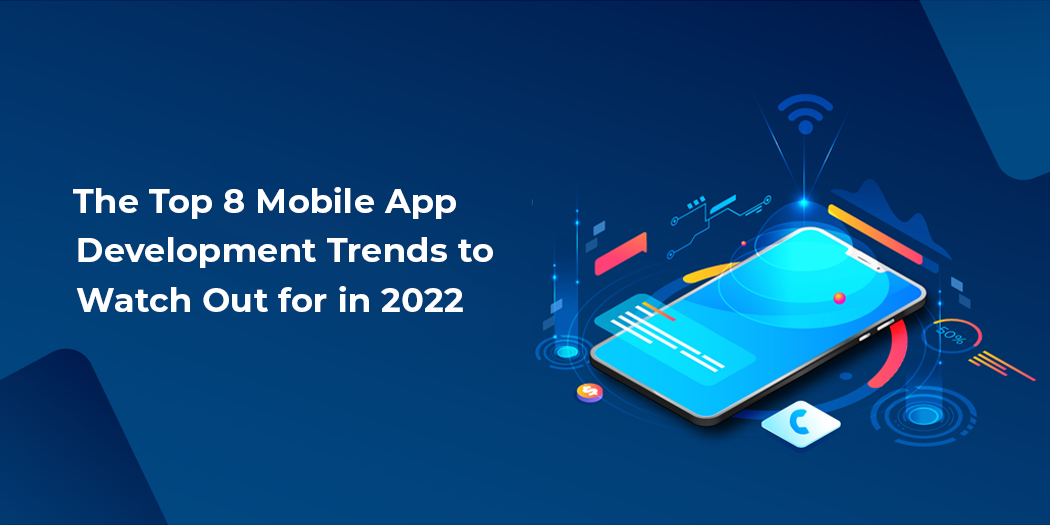Tech experts have consistently projected that the number of mobile app downloads will increase in the coming years, and these predictions have held true over the past few years. This makes it incredibly important for developers to keep up with the latest trends in mobile app development so they can stay ahead of the curve and potentially strike it rich by developing an app that gets widespread adoption. Here are some of the top mobile app development trends that developers should watch out for in 2022.
1) Voice Will Be The New User Interface
Voice-activated devices like Amazon’s Alexa and Google Home have turned speech into a new type of user interface. In five years, we’ll see more and more smartphone apps which use voice as their primary input. Voice has several benefits over touch screens: It works even if your hands are full or dirty, it keeps you eyes on where you are going instead of your phone screen, and it saves battery life by using less resources than listening to music.
Expect more and more apps which will require you to use voice as an input method. Instead of typing, entering information on a screen, or using physical buttons like home and back, apps will respond to your speech. The technology is already here—it’s just a matter of how developers choose to use it.
2) Chatbots Will Become More Human
In recent years, we’ve seen some major strides toward bringing AI to life. It’s only a matter of time before that translates into digital humanoids. In particular, chatbots will continue their rise as one of the most effective ways businesses interact with customers and leads. In 2021, it will be more common than not for businesses to deploy chatbots as part of their mobile app development strategies.
These chatbots will be even more human-like by 2022. For example, ChatbotQA has developed a machine learning chatbot that’s based on IBM Watson technology. The chatbot is designed to collect and evaluate data from thousands of past conversations, so it can intelligently determine how best to respond when it interacts with customers.
3) AR/VR Will Break Through As Gaming Platforms
Gaming is huge on mobile. Already, two-thirds of gamers prefer playing games on smartphones and tablets. The immersive nature of augmented reality (AR) and virtual reality (VR) make these platforms perfect for smartphone game development. In 2019, AR/VR revenue will reach $25 billion globally, up by 85% from 2018 revenue estimates. By 2022, it’s estimated that gaming on AR/VR will account for more than half of all app downloads worldwide.
The immersive nature of AR/VR will make these platforms perfect for smartphone game development. In fact, by 2022, it’s estimated that gaming on AR/VR will account for more than half of all app downloads worldwide.
Tablet and Smartphone Apps Will Become A Top-Tier Growth Opportunity: Today, smartphones and tablets account for over two-thirds of app downloads worldwide. Despite mobile phones outselling tablets at a rate of four to one, tablets still drive higher engagement rates across almost every metric imaginable.
4) Data Security Is The Number One Priority
As more companies begin introducing mobile apps to their daily operations, they also begin collecting and storing data on a larger scale. Due to recent security breaches, data security is now one of if not the number one priority for both consumers and businesses. And with mobile app development growing at an exponential rate, developers will have no choice but to accommodate users’ concerns about their information being compromised.
But data security isn’t just a way to help enterprises and consumers feel more secure, it’s also good business. This is because if you look at it from a customer acquisition perspective, you lose potential customers if they don’t trust your brand or your app’s security.
5) AI Will Revolutionize User Interaction
While AI won’t dominate mobile app development in 2022, it will play a huge role. Chatbots and voice assistants—powered by AI and big data analytics—will revolutionize how people interact with apps, meaning apps themselves won’t have to be as complex or even exist. In fact, many users will ditch native mobile apps altogether and use chatbots on third-party websites for everything from food delivery to booking hotels.
6) More Frequent Updates And Releases
With so many apps offering similar features, developers will have to strive even harder to make their apps stand out. To do that, they’ll need more frequent updates and releases. The best way to stay relevant is by creating a strong mobile app development team and bringing them on board early in your app’s life cycle. When your business uses agile development techniques, it allows your employees and contractors to adapt quickly.
When users have access to new features on a regular basis, they’re more likely to keep using your app.
7) Consumer Privacy Demands Are Increasing
A 2016 Pew Research study found that consumers are more concerned with privacy than ever before. It also means they want companies to be open about what they do with users’ data.
Users are demanding more transparency from companies. They want to know exactly what data is being collected, how it’s used, and who has access to it. In short, privacy is becoming a growing priority that all app developers need to understand.
8) B2B Is Going To Change Too!
Big data and AI will have a tremendous impact on B2B applications as well. The number of devices we’re carrying around is increasing every year, while our working hours are shrinking. Because of all these changes, B2B applications are going to look very different five years from now. The technology we use will be more accessible and powerful, so our applications will have to grow with them.






